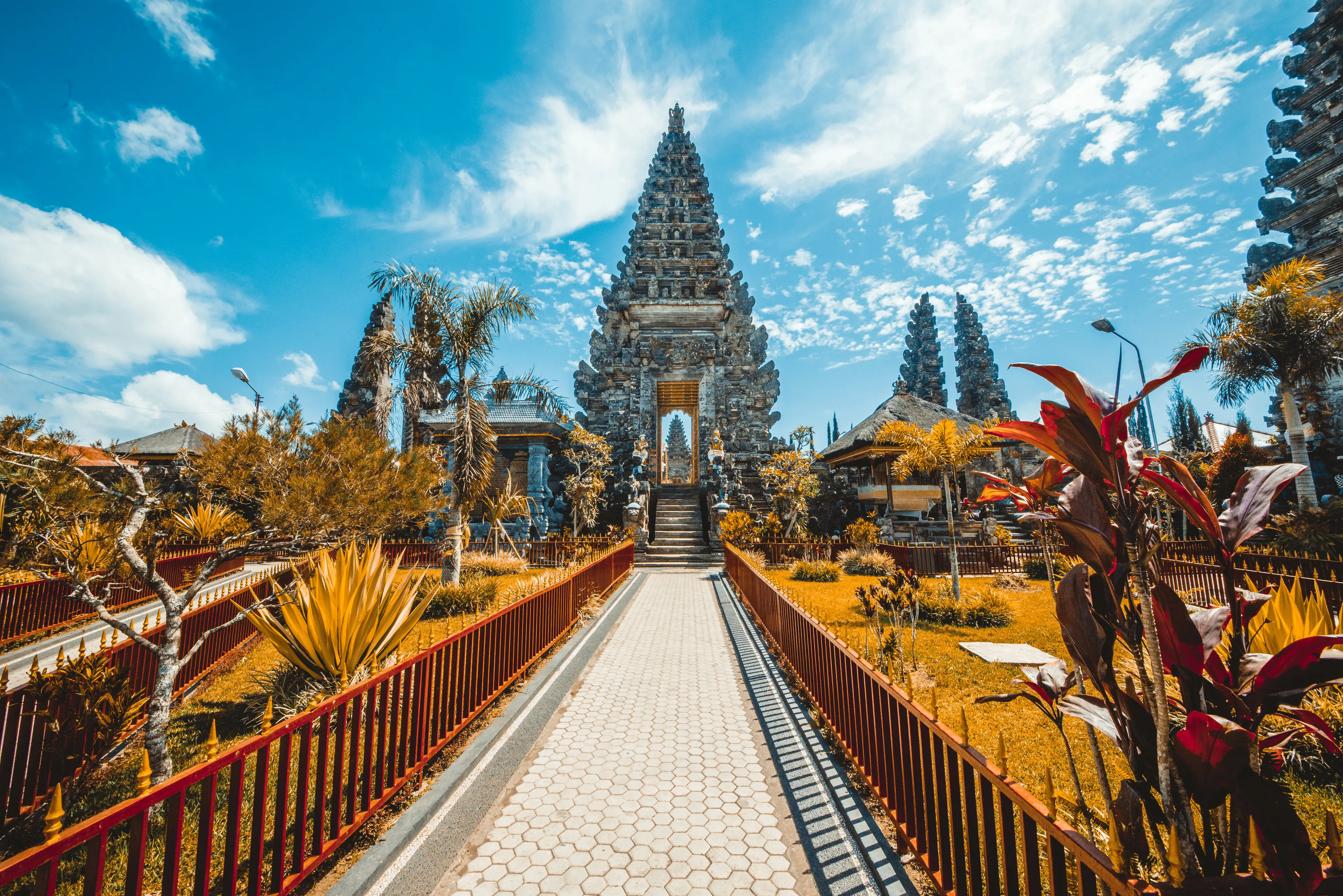2-Day Bali Itinerary: Relaxing & Shopping Retreat with Friends
Bali, Indonesia
2 days



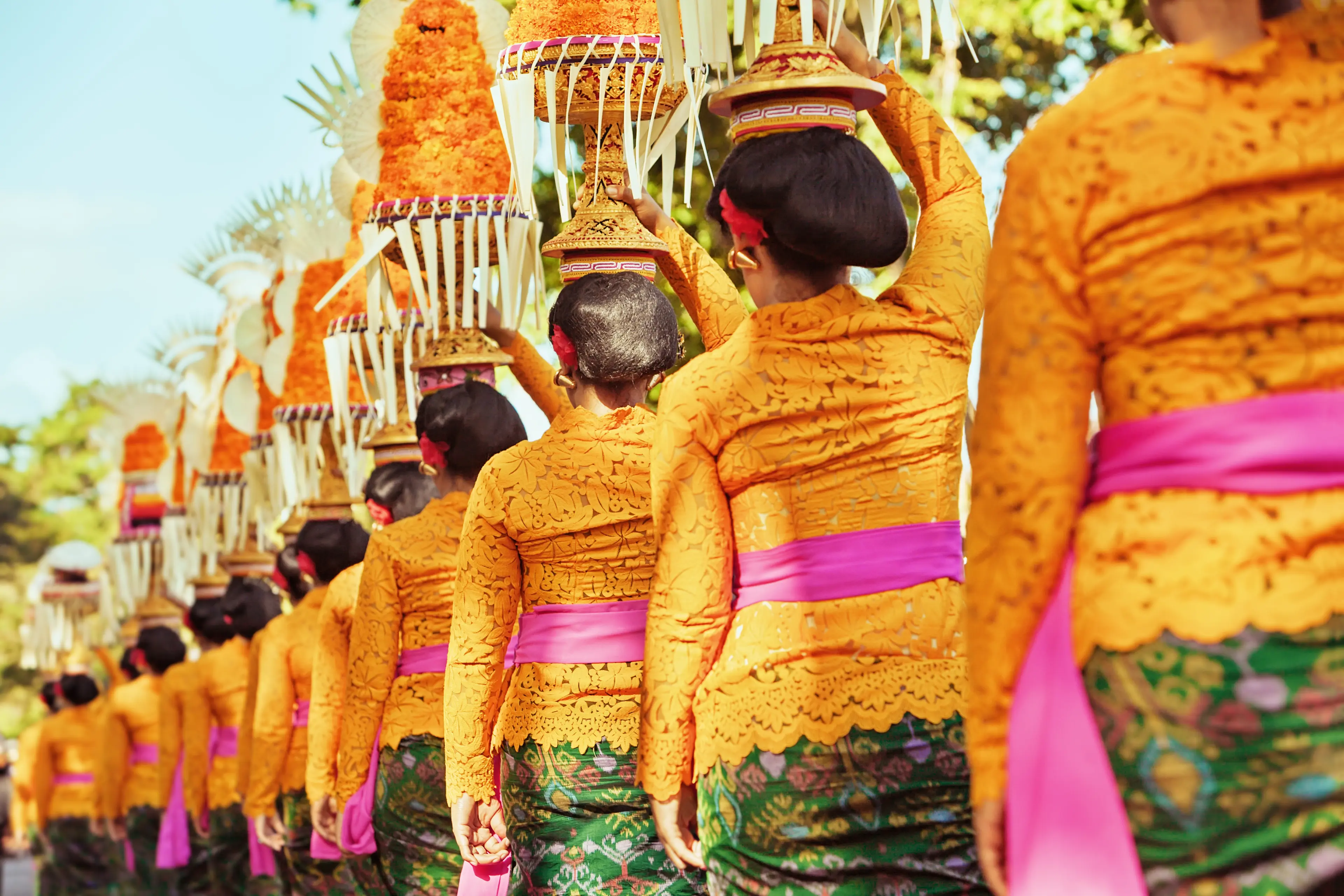
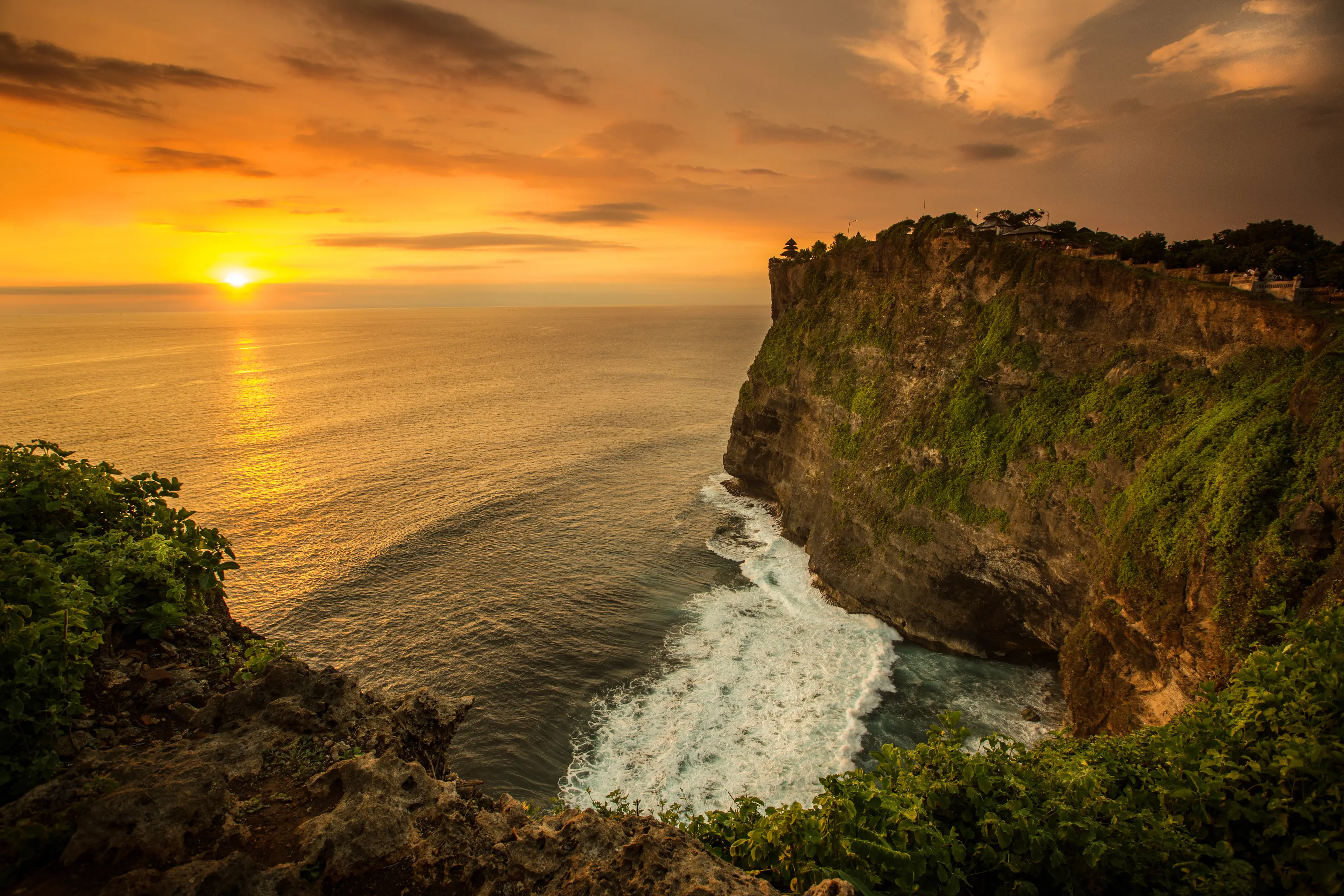
About Bali, Indonesia
Experience the enchanting island paradise of Bali, Indonesia. Known for its stunning beaches, vibrant culture, and lush landscapes, Bali offers a unique blend of relaxation and adventure. Explore ancient temples, immerse yourself in traditional Balinese arts and crafts, or indulge in world-class surfing and diving. The island's diverse culinary scene ranges from local street food to high-end dining. Enjoy the tranquility of Ubud's rice terraces and the excitement of Seminyak's nightlife. Bali's luxury resorts and villeries provide the perfect retreat after a day of exploration. With its warm, welcoming locals and rich cultural heritage, Bali is more than just a destination - it's an experience.
2-Day Itinerary
Day 2
Exploring Nature and Culture in Ubud
Morning
Begin your second day with a visit to the Tegalalang Rice Terraces. These terraces offer stunning views and are a great place for a morning walk.
Lunch
Have lunch at a café overlooking the rice terraces. These cafés offer a variety of dishes, from traditional Balinese cuisine to more western options.
Afternoon
In the afternoon, visit the Sacred Monkey Forest Sanctuary. This nature reserve and Hindu temple complex is home to over 700 monkeys.
Dinner
For dinner, try a restaurant in Ubud that offers traditional Balinese dance performances. These performances are a great way to experience Balinese culture while enjoying a delicious meal.
Evening
End your day with a visit to a local spa for a traditional Balinese massage. This is a perfect way to relax and unwind after a busy day of sightseeing.
Attractions in Itinerary (6)
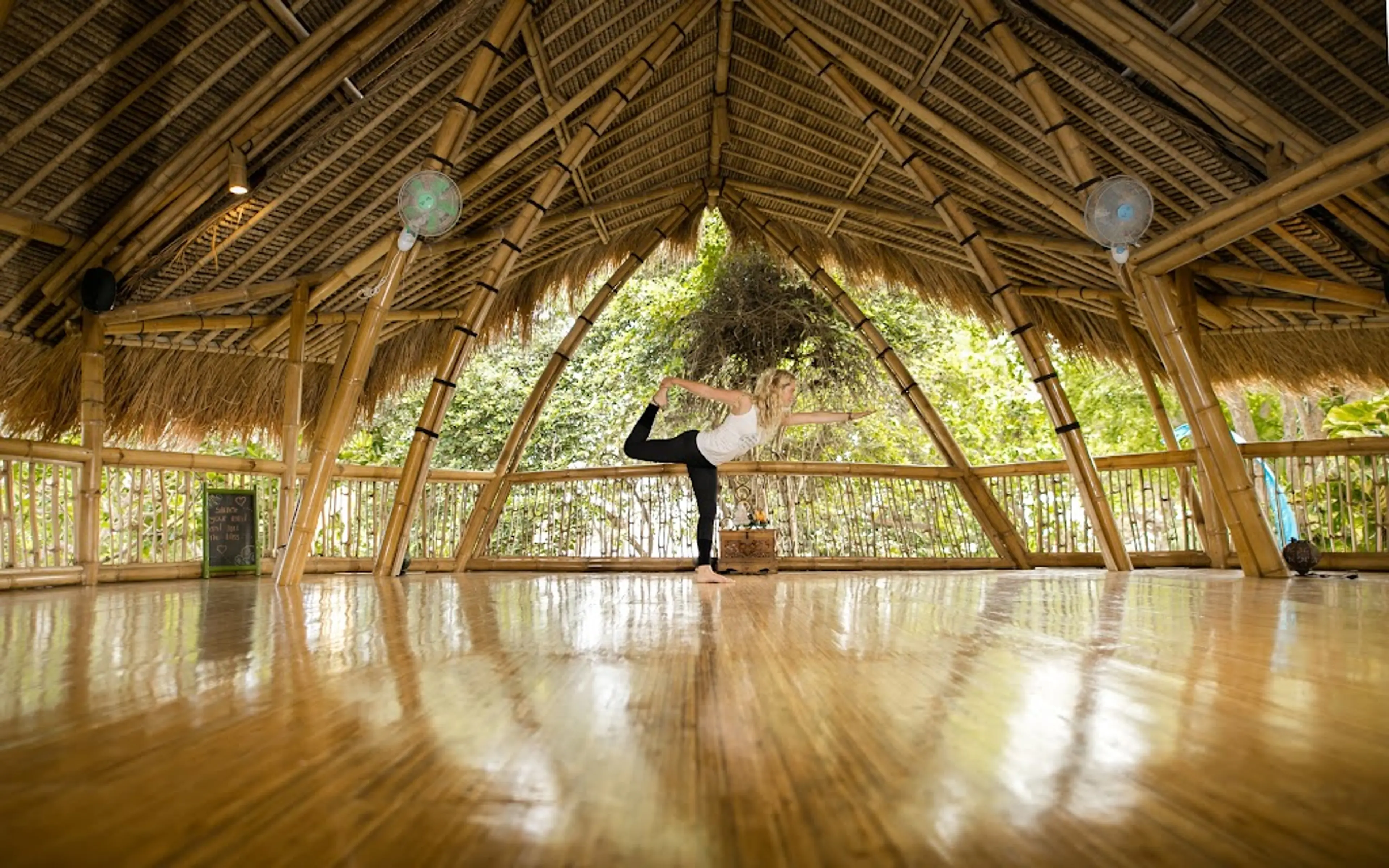
1Yoga Studios
Bali is known for its yoga studios, offering classes for all levels. They provide a serene environment for practicing yoga and meditation.

2Ubud Art Market
A bustling market where local artisans and craftsmen sell their handmade products, from traditional Balinese clothing and accessories to unique home decor items.
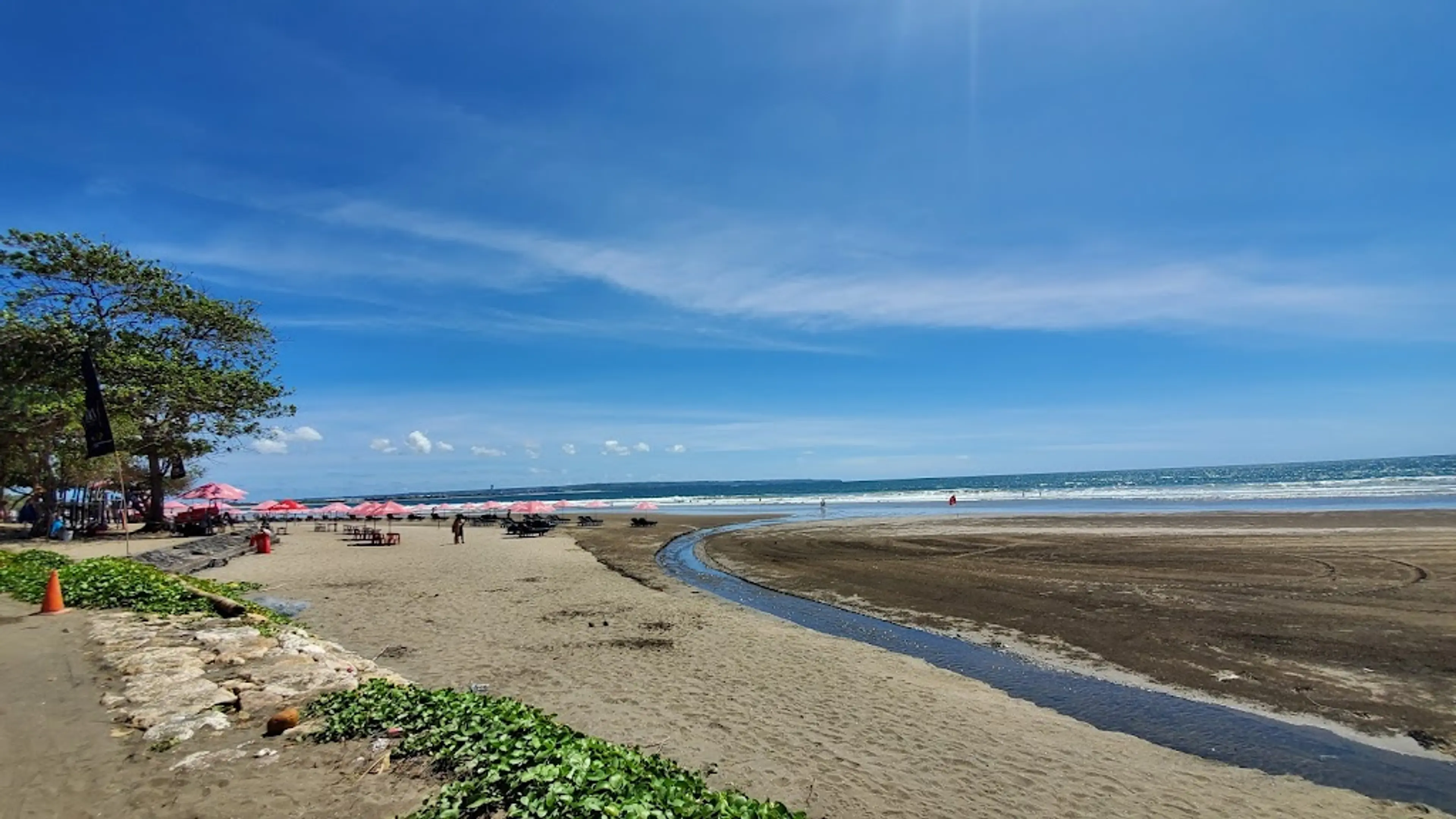
3Seminyak Beach
A stylish and upscale beach resort area, with high-end restaurants and bars, designer boutiques and luxury accommodation.
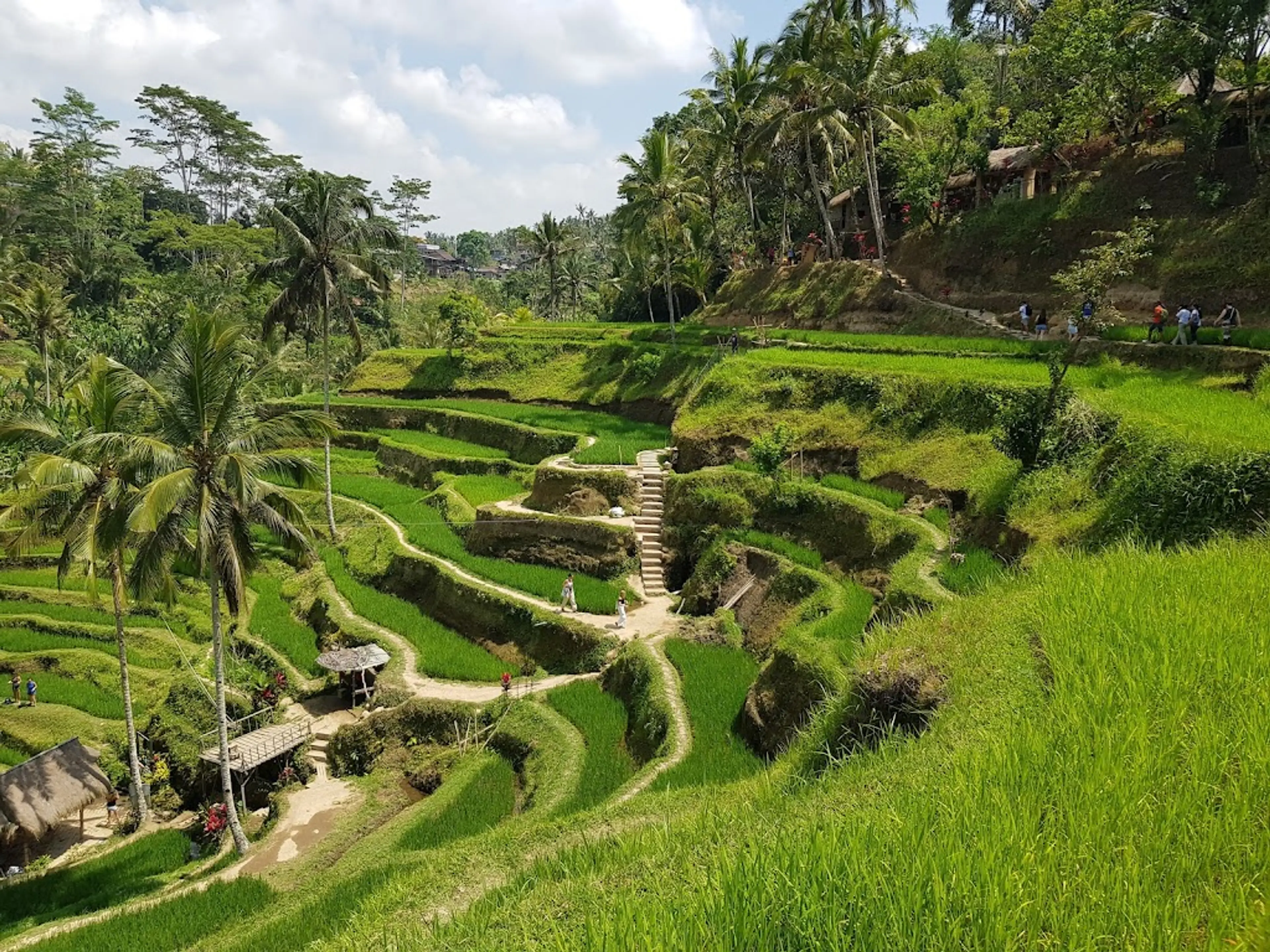
4Tegalalang Rice Terraces
Famous for its beautiful scenes of rice paddies involving the subak (traditional Balinese cooperative irrigation system).
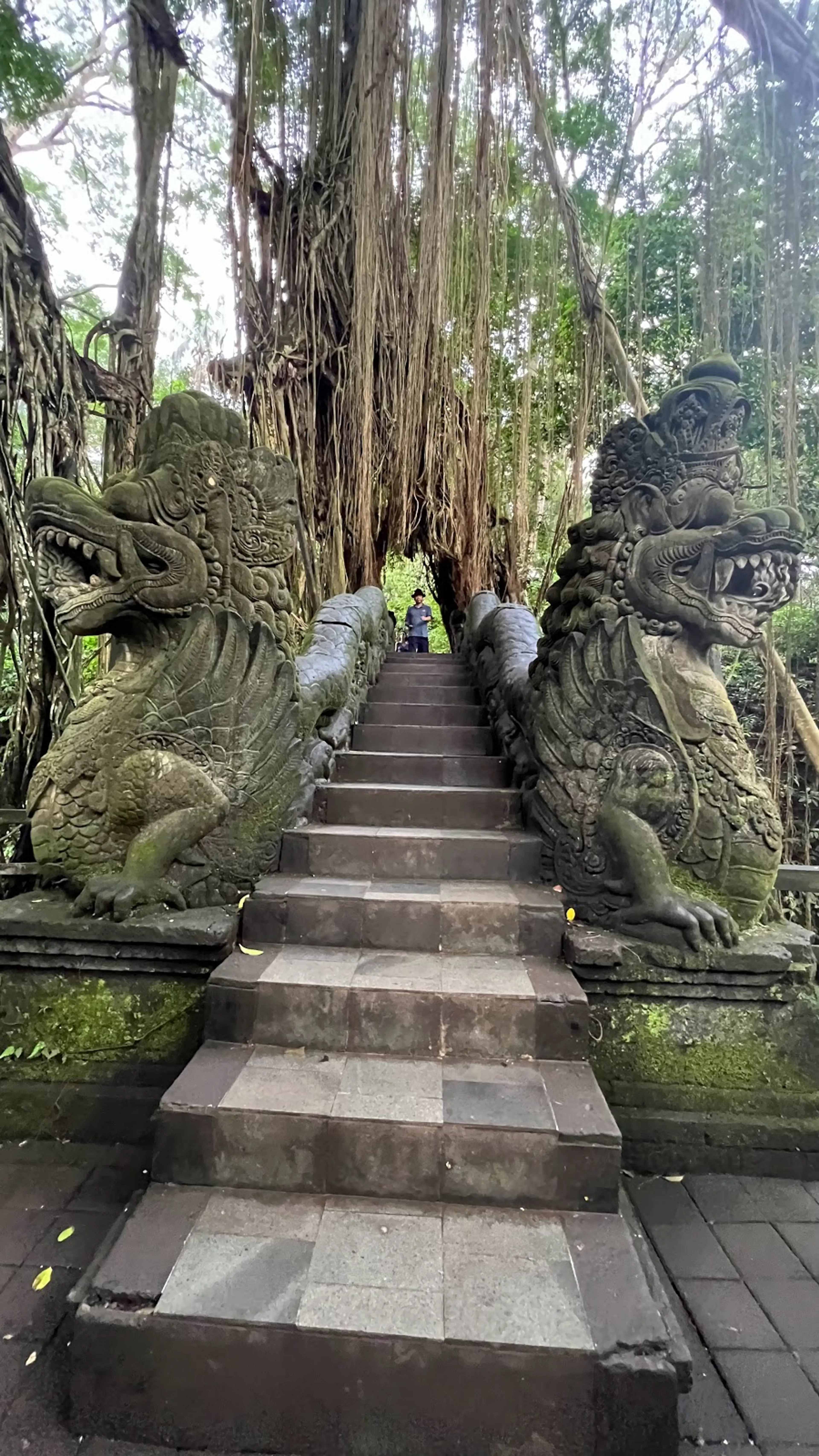
5Sacred Monkey Forest Sanctuary
A nature reserve and Hindu temple complex in Ubud, Bali. Its primary function is as a sanctuary for the Balinese long-tailed Monkey.
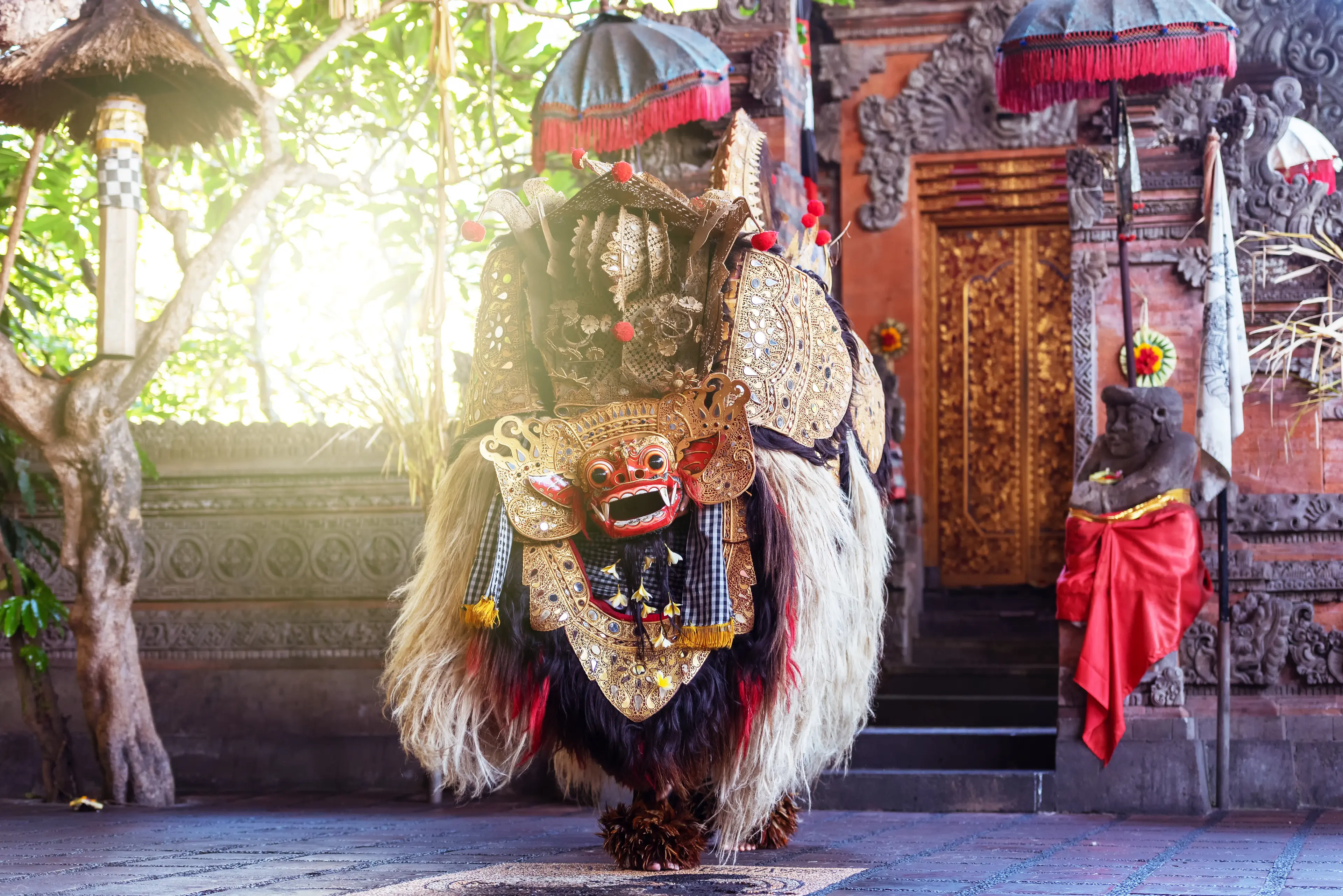
6Balinese dance performances
Traditional dance performances showcasing Balinese culture and mythology
Local Food and Drinks (12)
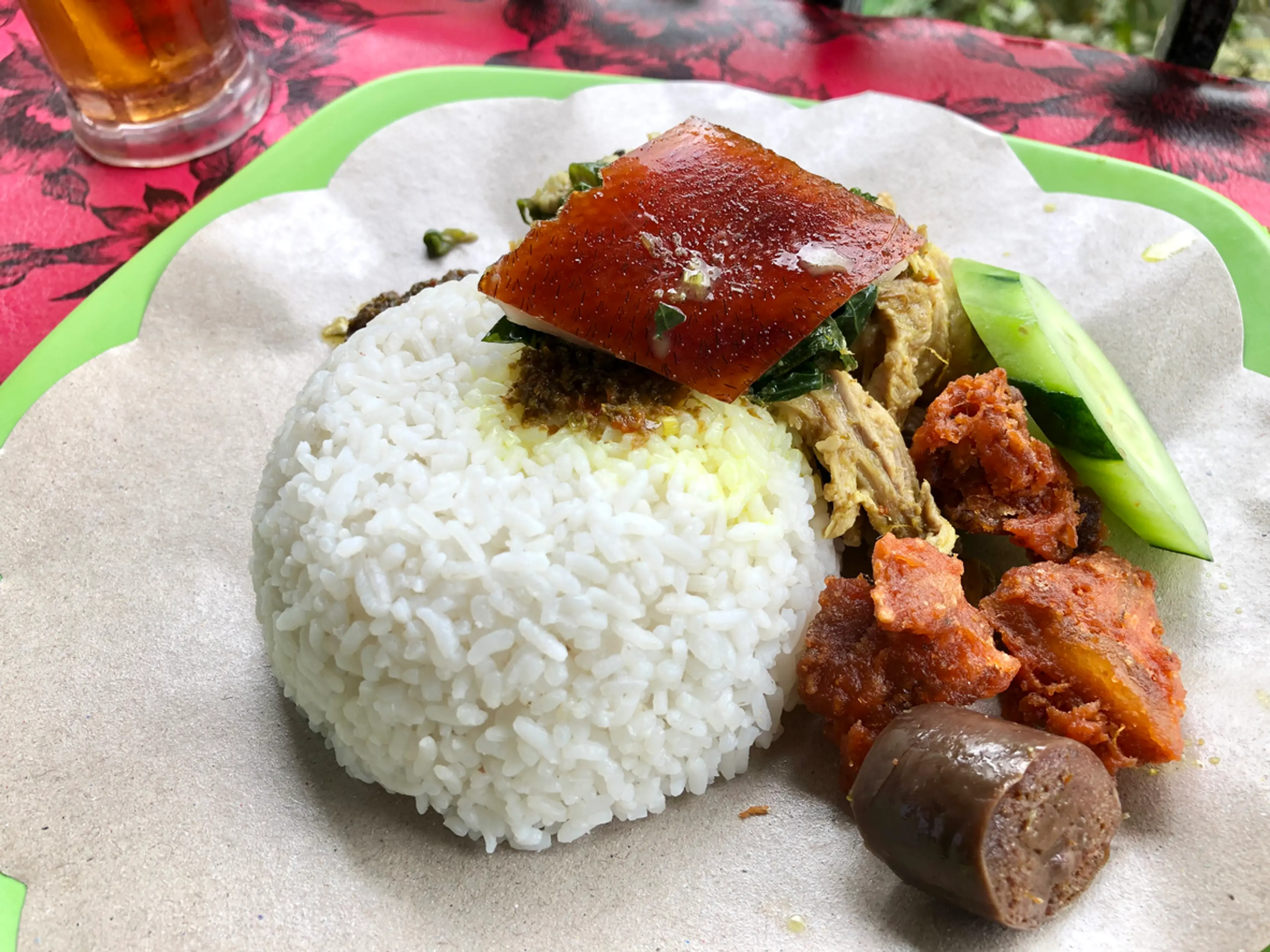
Babi Guling
A Balinese dish of spit-roasted pig, Babi Guling is considered one of the most popular dishes in Bali. It is traditionally served with rice and vegetables.

Nasi Campur
Nasi Campur, or mixed rice, is a staple dish in Bali. It typically includes small portions of vegetables, fish or meat, and sambal served with steamed rice.

Sate Lilit
Sate Lilit is a Balinese style of satay made from minced seafood that's mixed with coconut, coconut milk, and a rich blend of vegetables and spices.
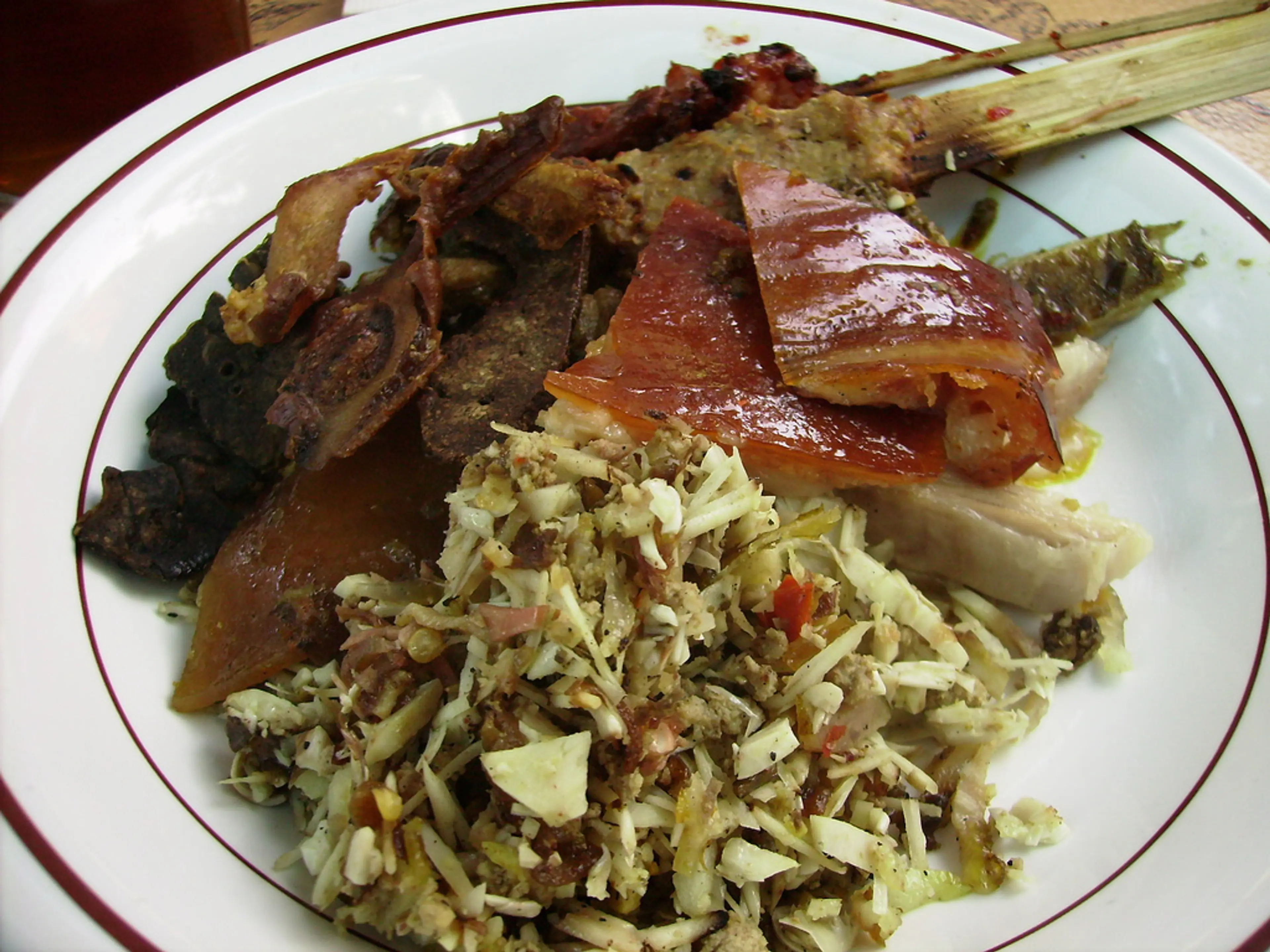
Lawar
Lawar is a traditional Balinese dish made from a mixture of vegetables, coconut, and minced meat mixed with rich herbs and spices.
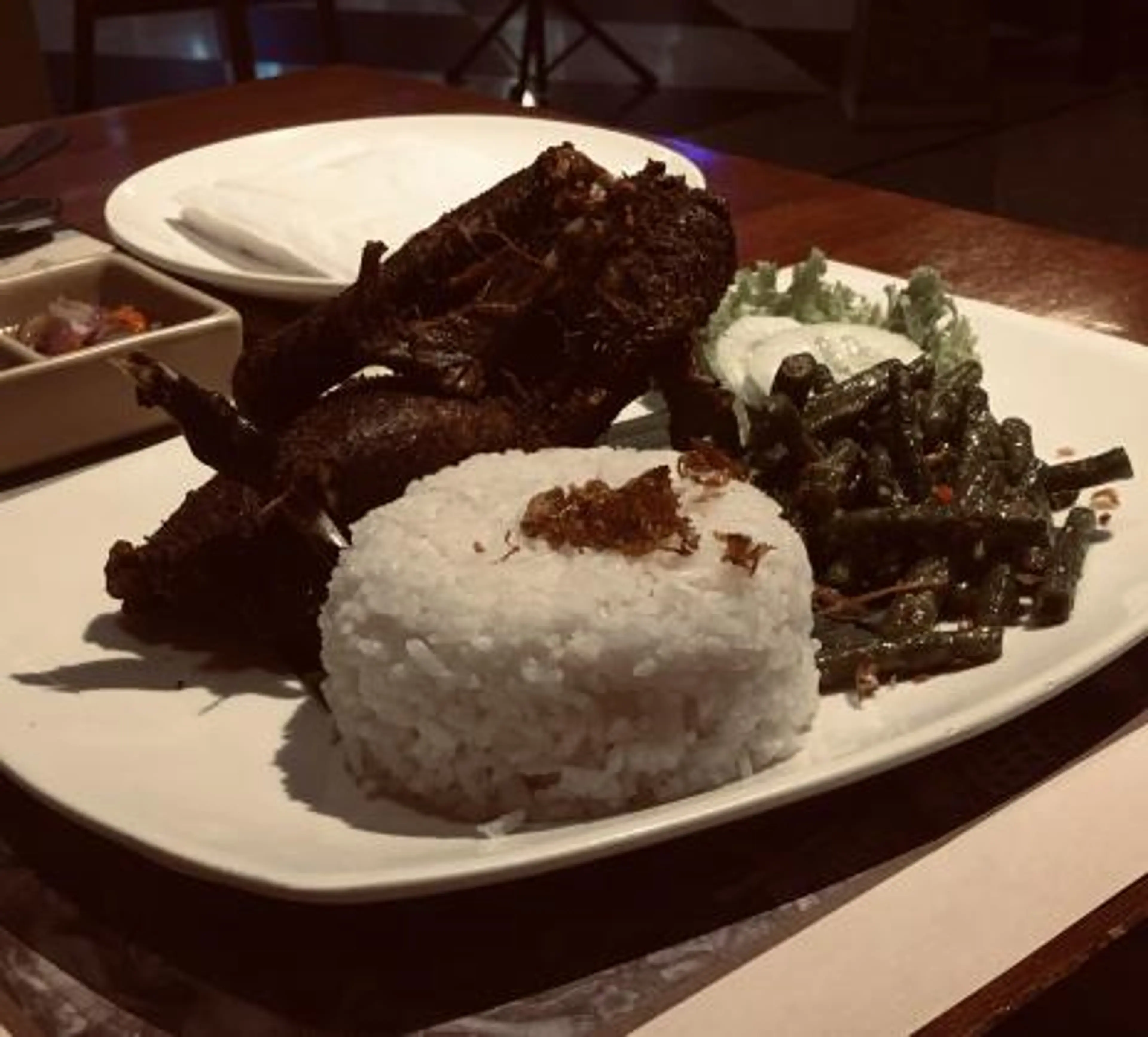
Betutu
Betutu is a Balinese dish made from slow-cooked chicken or duck. This highly seasoned and spiced dish is a popular meal in Bali.
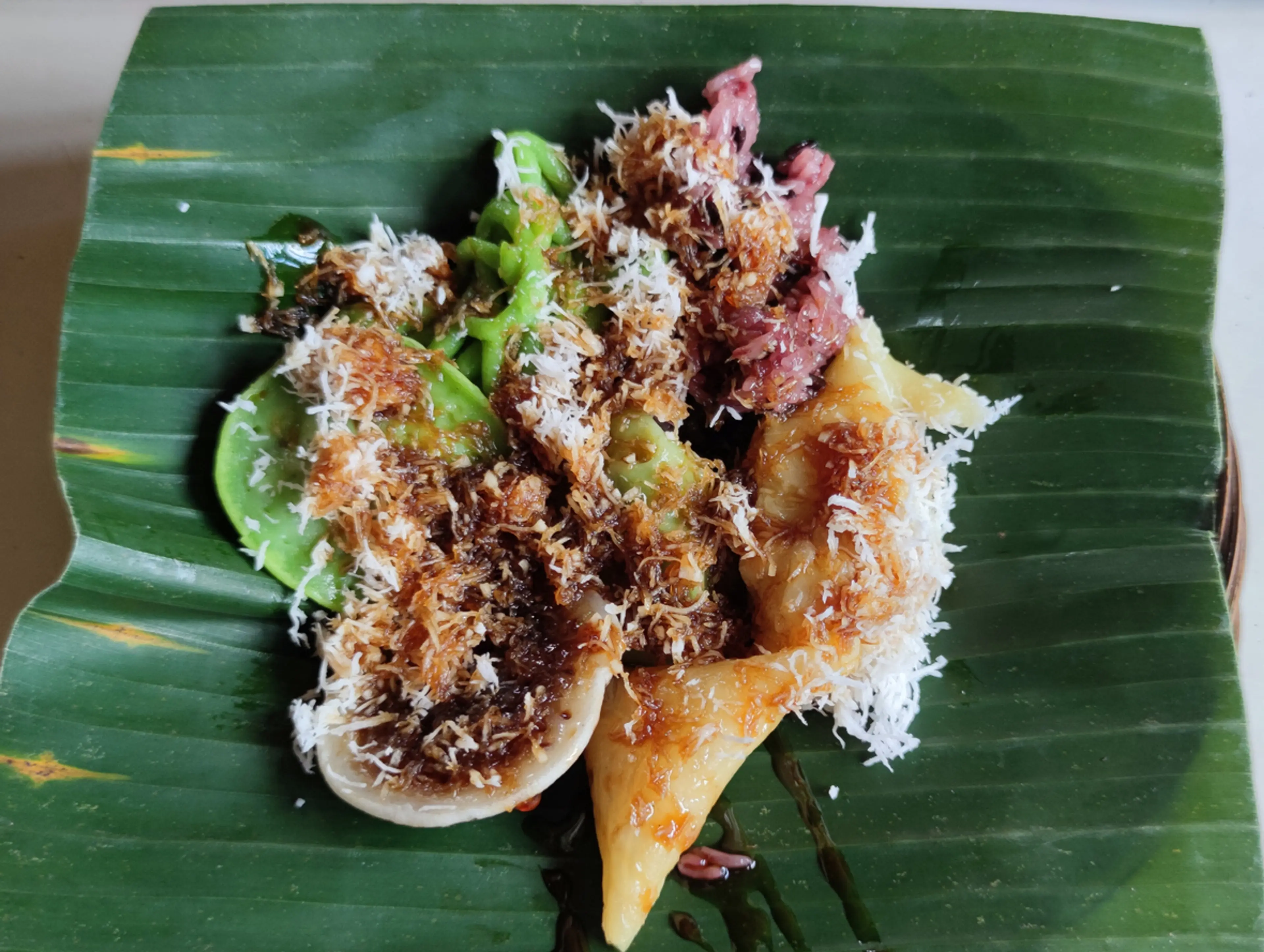
Jaje Bali
Jaje Bali is a traditional Balinese dessert. It is a colorful and sweet treat made from sticky rice, coconut, and palm sugar.

Nasi Goreng
Nasi Goreng, or fried rice, is a popular dish in Bali. It is typically served with a variety of accompaniments such as shrimp, chicken, or prawns.

Es Daluman
Es Daluman is a traditional Balinese drink made from grass jelly and served with coconut milk and palm sugar syrup.
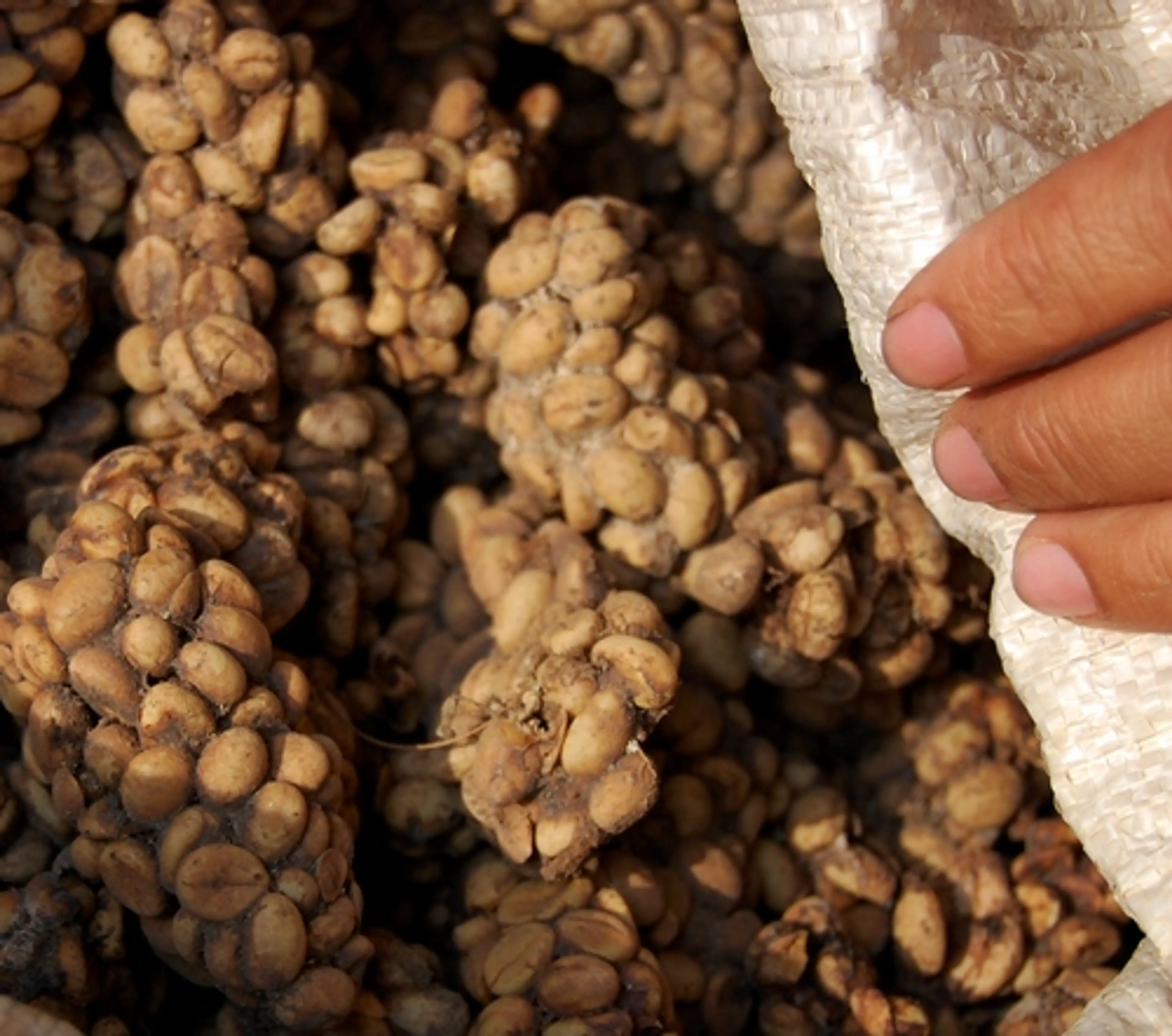
Kopi Luwak
Kopi Luwak, or civet coffee, is one of the most expensive coffees in the world and is produced in Bali. It is made from coffee cherries that have been eaten and excreted by a civet.
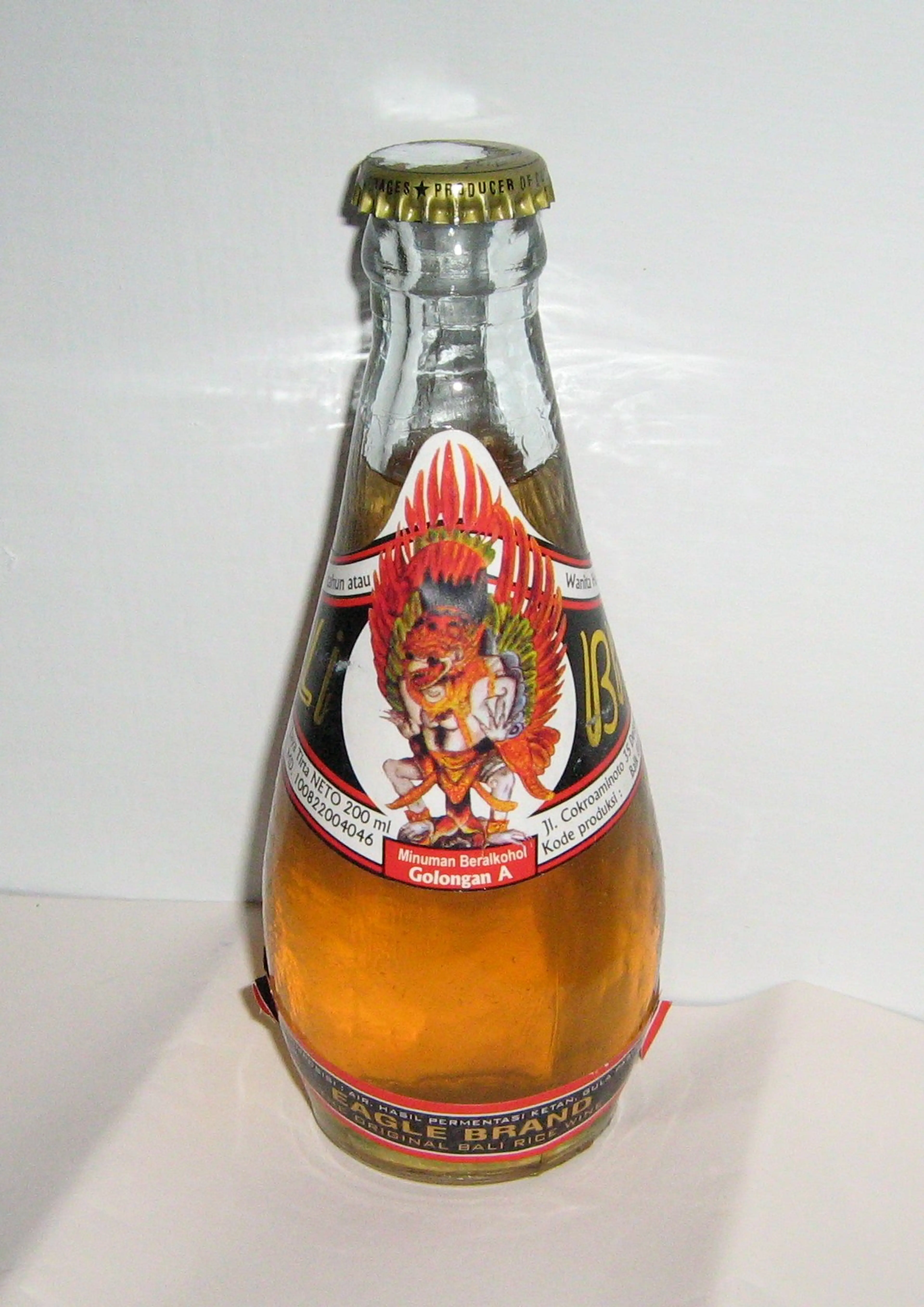
Brem
Brem is a traditional Balinese rice wine that is often served during ceremonies and special occasions.

Arak
Arak is a traditional Balinese spirit made from fermented rice or palm sap. It is often used in religious ceremonies.
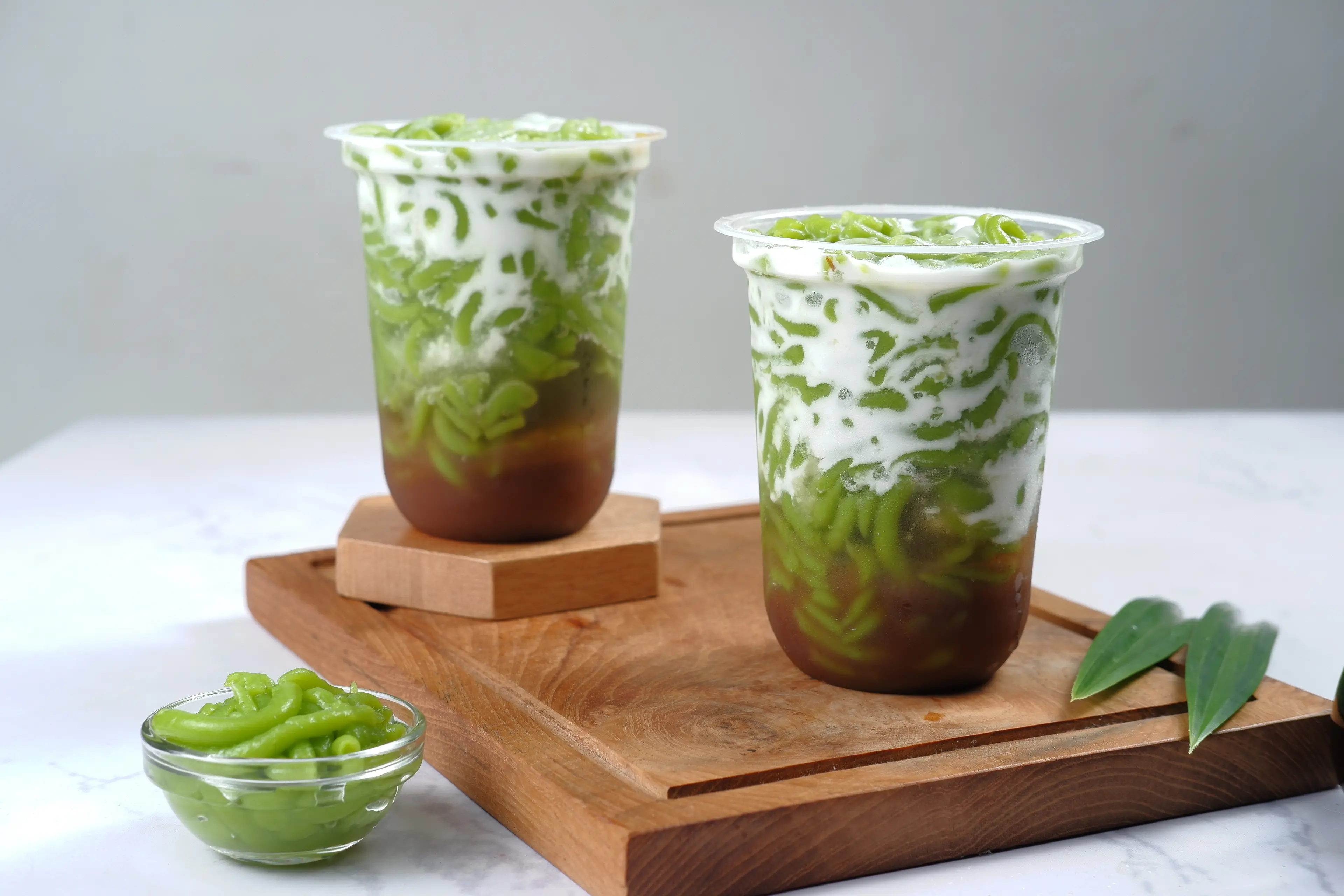
Es Cendol
Also known as Dawet, Es Cendol is a popular Balinese drink made from rice flour served with coconut milk and palm sugar syrup.
Best time to visit
The best time to visit Bali, Indonesia is during the dry season, which runs from April to October. During this period, you can expect less rain and humidity, making it ideal for outdoor activities such as beach visits, surfing, and exploring the island's cultural landmarks. The months of July and August are particularly popular due to the excellent weather, but they also tend to be the busiest. For those seeking a quieter experience, the shoulder months of April, May, June, and September are excellent choices.
How to get around
Private Car
Private cars are a popular choice for getting around Bali. They offer flexibility and convenience, especially for families or groups. You can hire a car with a driver for a day or for your entire stay. The driver will know the best routes to avoid traffic and can also act as a local guide.
Taxi
Taxis are readily available in most tourist areas like Kuta, Seminyak, and Ubud. Blue Bird Group is the most reputable taxi company in Bali. They use meters, but it's also common to negotiate a price before the trip.
Motorbike
Renting a motorbike is a common way to get around Bali. It gives you the freedom to explore at your own pace. However, you should only choose this option if you are a confident rider and familiar with the local traffic rules.
Bicycle
Bicycling is a great way to explore the quieter areas of Bali like Ubud. Many hotels and guesthouses offer bicycle rental services. It's a healthy and environmentally friendly way to travel.
Shuttle Bus
Shuttle buses are a cost-effective way to travel between Bali's major tourist areas. They operate on fixed routes and schedules. The most well-known shuttle bus service is the Kura-Kura Bus, which covers areas like Kuta, Seminyak, Jimbaran, and Ubud.
Ridesharing
Ridesharing services like Grab and Gojek are available in Bali. They offer car and motorbike rides, as well as food delivery services. These apps are convenient to use and often cheaper than traditional taxis.
Traditional Boat
For trips to Bali's surrounding islands like Nusa Penida and Nusa Lembongan, traditional boats or speedboats are the way to go. You can book these trips through a tour operator or directly at the harbor.
Bemo
Bemos are public minibuses or vans that are a common form of transport for locals. They are a cheap way to get around, but routes can be confusing for tourists and they can get quite crowded.
Foot
Walking is a viable option in certain areas of Bali, particularly in smaller towns and villages or for short distances. It's a great way to take in the sights and sounds of the island at a leisurely pace.
Important information
CurrencyRp IDR
Time zoneUTC+7
Driving sideLeft
Emergency phoneAmbulance: 118; Fire: 113; Police: 110
Drinking waterOpt for bottled water
Power sockets
Voltage230 V
Things to know about Bali, Indonesia as a first time visitor
1
Bali is a tropical island, so pack light, breathable clothing. Don't forget your swimwear, sunscreen, and a hat.
2
The local currency is the Indonesian Rupiah (IDR). It's best to have some cash on hand for small purchases, but credit cards are widely accepted in most places.
3
Bali is predominantly Hindu, and there are many temples and religious ceremonies. Please respect local customs and dress modestly when visiting these sites.
4
The tap water in Bali is not safe to drink. Always buy bottled water for drinking and brushing your teeth.
5
Bali is in the Central Indonesia Time Zone (GMT+8).
6
The official language is Indonesian, but English is widely spoken in tourist areas.
7
Bali's climate is tropical, with average temperatures ranging from 79°F to 91°F (26°C to 33°C) year-round.
8
Bali has a rainy season from November to March. If you prefer a drier climate, plan your visit between April and October.
9
Taxis are plentiful and affordable in Bali. However, make sure to use a reputable company or negotiate the fare upfront to avoid being overcharged.
10
Bali is known for its traditional arts and crafts. When shopping, remember to bargain as it's a common practice in local markets.
11
Be aware of the 'Bali belly', a common term for traveler's diarrhea. Avoid street food and always eat at clean, reputable places.
12
Bali has a diverse wildlife. Be cautious when interacting with animals, especially monkeys, as they can be aggressive.
13
Healthcare facilities in Bali are adequate, but for serious conditions, medical evacuation may be necessary. Make sure you have travel insurance that covers this.
14
Bali's electrical outlets are type C and F, with a standard voltage of 230 V and frequency of 50 Hz. You may need a power plug adapter or voltage converter.
15
Tipping is not mandatory in Bali, but it is appreciated. A 10% tip is considered generous.
16
Bali has strict laws against drugs. Possession, trafficking, and consumption of illegal drugs can lead to severe penalties, including death.
17
Bali is generally safe, but petty crime like pickpocketing can occur, especially in crowded areas. Always keep an eye on your belongings.
18
Public displays of affection are frowned upon in Bali, especially in rural areas and temples. It's best to be respectful of local customs.
19
Bali has a plastic bag ban in place. It's a good idea to carry a reusable bag for your shopping.
20
If you're planning to drive in Bali, you'll need an international driving permit. Also, remember that traffic moves on the left side of the road.
Basic Indonesian to know as a first time visitor
English phrase | Native phrase | Pronunciation | When to use it |
|---|---|---|---|
Hello | Halo | Ha-lo | Greeting someone |
Goodbye | Selamat tinggal | Se-la-mat ting-gal | Leaving a place or person |
Please | Tolong | To-long | Asking for a favor |
Thank you | Terima kasih | Te-ri-ma ka-sih | Showing gratitude |
Yes | Ya | Ya | Agreeing with someone |
No | Tidak | Ti-dak | Disagreeing with someone |
Excuse me | Permisi | Per-mi-si | Getting someone's attention |
I'm sorry | Maaf | Ma-af | Apologizing |
Do you speak English? | Apakah anda berbicara bahasa Inggris? | A-pa-kah an-da ber-bi-ca-ra ba-ha-sa Ing-gris | Asking if someone speaks English |
I don't understand | Saya tidak mengerti | Sa-ya ti-dak men-ger-ti | When you don't understand what is being said |
Where is the bathroom? | Di mana kamar kecil? | Di ma-na ka-mar ke-cil | Asking for the location of the bathroom |
How much does this cost? | Berapa ini harganya? | Be-ra-pa i-ni har-ga-nya | Asking the price of something |
I would like to order | Saya ingin pesan | Sa-ya in-gin pe-san | Ordering food or drink |
Delicious | Enak | E-nak | Complimenting food |
Help | Bantuan | Ban-tu-an | In case of emergency |
Call the police | Panggil polisi | Pang-gil po-li-si | In case of emergency |
Good morning | Selamat pagi | Se-la-mat pa-gi | Greeting someone in the morning |
Good night | Selamat malam | Se-la-mat ma-lam | Greeting someone at night |
I am lost | Saya tersesat | Sa-ya ter-se-sat | When you are lost |
Can you help me? | Bisa bantu saya? | Bi-sa ban-tu sa-ya | Asking for help |
Packing List
Clothing
Lightweight clothing
Swimwear
Beach cover-up
Underwear
Socks
Comfortable walking shoes
Flip flops
Hat
Sunglasses
Light jacket or sweater for evenings
Toiletries
Travel-sized shampoo and conditioner
Body wash
Toothbrush and toothpaste
Deodorant
Razor
Sunscreen
After-sun lotion
Insect repellent
Travel-sized first aid kit
Prescription medications
Contact lenses and solution (if needed)
Travel documents and essentials
Passport
Driver's license or other ID
Credit and debit cards
Cash in local currency
Travel insurance documents
Hotel and transportation reservation confirmations
Emergency contact information
Electronics and gadgets
Smartphone
Charger for smartphone
Headphones
Camera
Charger for camera
Power adapter
Portable power bank
Miscellaneous items
Travel pillow
Earplugs and eye mask
Snacks
Reusable water bottle
Books or e-reader
Travel guide for Bali
Beach bag
Beach towel
Travel laundry detergent packets
Weather Conditions
Bali, Indonesia is a tropical paradise that experiences warm weather throughout the year. The average temperature usually ranges from 79°F to 91°F (26°C to 33°C). However, the island does have two distinct seasons: the dry season and the rainy season. The dry season, from April to September, is the most popular time to visit. During this period, the weather is sunny and dry, making it perfect for outdoor activities like beach hopping, surfing, and exploring the island's numerous temples and cultural sites. However, it's also the busiest time of the year, so expect larger crowds at popular tourist spots. The rainy season, from October to March, sees higher humidity and frequent rain showers. However, the rain in Bali is usually predictable, often occurring in the late afternoon or evening, and it rarely disrupts activities. The island is less crowded during this time, and the landscape is lush and green. It's also a great time to visit if you're interested in water-based activities like white-water rafting. Regardless of when you visit, it's important to stay hydrated and protect yourself from the sun. The sun in Bali can be intense, so don't forget to pack sunblock, sunglasses, and a hat. Also, even in the dry season, it's a good idea to carry a light rain jacket or umbrella, as occasional showers can occur. Remember, the weather can change quickly in Bali, so it's always a good idea to check the local forecast before planning your day. Enjoy your trip to this beautiful island!
| Month | Hi / Lo (°C) | Weather Overview |
|---|---|---|
January | 30° / 22° | January is the wettest month in Bali, with high humidity and rain showers. However, it's still warm with temperatures ranging from 22 to 30 degrees Celsius. |
February | 30° / 22° | February is also a rainy month, with temperatures similar to January. It's a good time to visit for those who enjoy less crowded tourist spots. |
March | 31° / 22° | March marks the end of the rainy season, with temperatures slightly increasing. The humidity starts to decrease, making it a comfortable time to visit. |
April | 32° / 22° | April is the start of the dry season in Bali, with less rainfall and more sunshine. The temperatures range from 22 to 32 degrees Celsius. |
May | 32° / 22° | May offers great weather with less humidity and rainfall. It's an ideal time for outdoor activities and beach visits. |
June | 32° / 22° | June is one of the best months to visit Bali, with lots of sunshine and blue skies. The temperatures remain consistent, ranging from 22 to 32 degrees Celsius. |
July | 32° / 22° | July is the peak tourist season in Bali, with excellent weather conditions. It's a perfect time for sunbathing, surfing, and exploring the island. |
August | 32° / 22° | August continues the trend of sunny and dry weather. It's a popular time for tourists, so expect crowded beaches and tourist spots. |
September | 32° / 22° | September is a great month to visit, with less crowd and still excellent weather. The temperatures remain consistent, making it ideal for beach activities. |
October | 32° / 22° | October marks the start of the rainy season, but the weather remains mostly dry and warm. It's a good time to visit for those who prefer less crowded places. |
November | 31° / 22° | November sees an increase in rainfall, but the temperatures remain warm. It's a good time to visit for those who enjoy indoor activities and exploring local culture. |
December | 30° / 22° | December is a wet month with high humidity, but it's still warm. It's a good time to visit for those who enjoy less crowded tourist spots and don't mind occasional rain showers. |
Did you know?
Places near by Bali, Indonesia
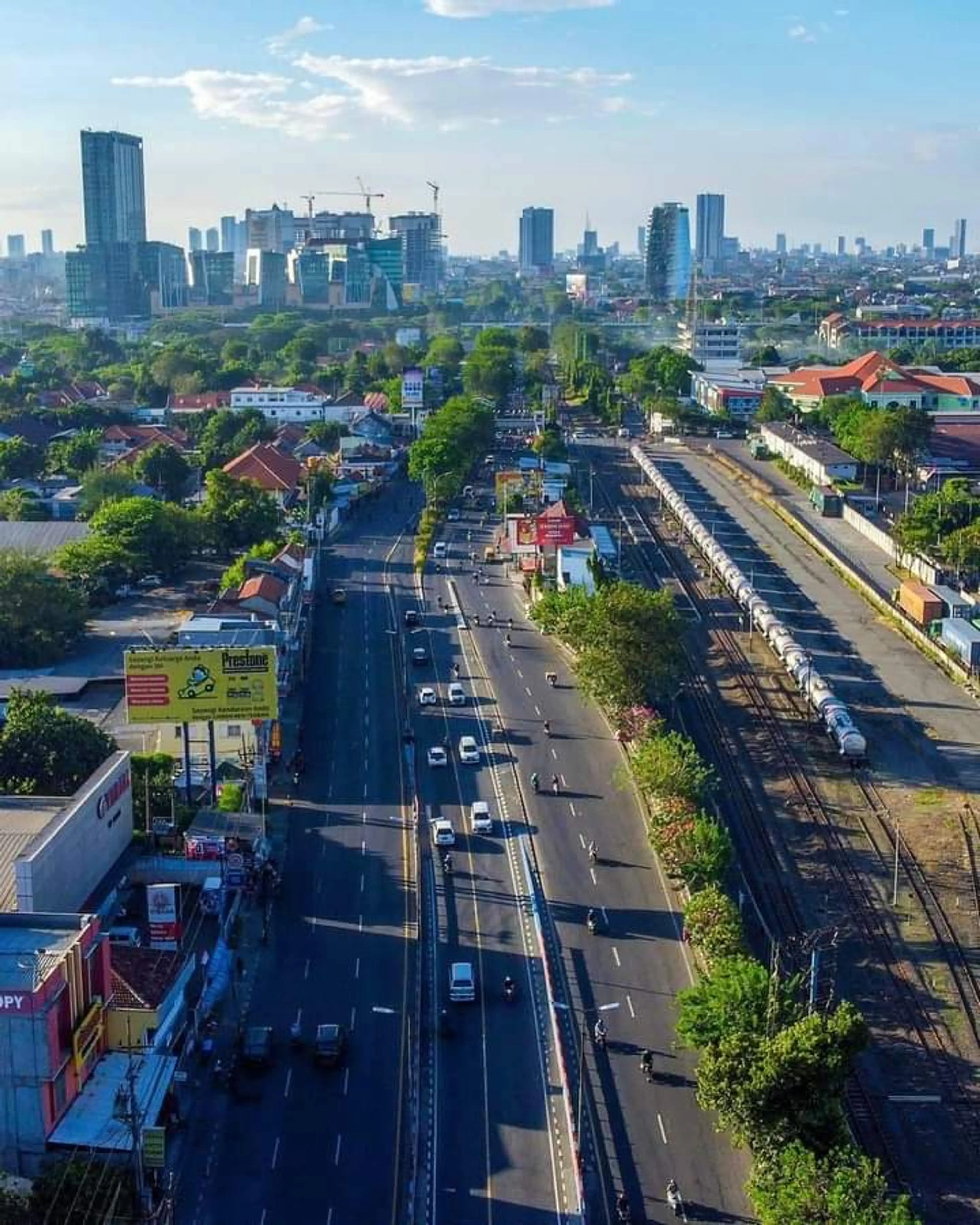
Surabaya
Known for its vibrant city life and rich history, Surabaya is the second largest city in Indonesia.

Yogyakarta
A city famous for its traditional arts and cultural heritage. It's home to the renowned Borobudur Temple.
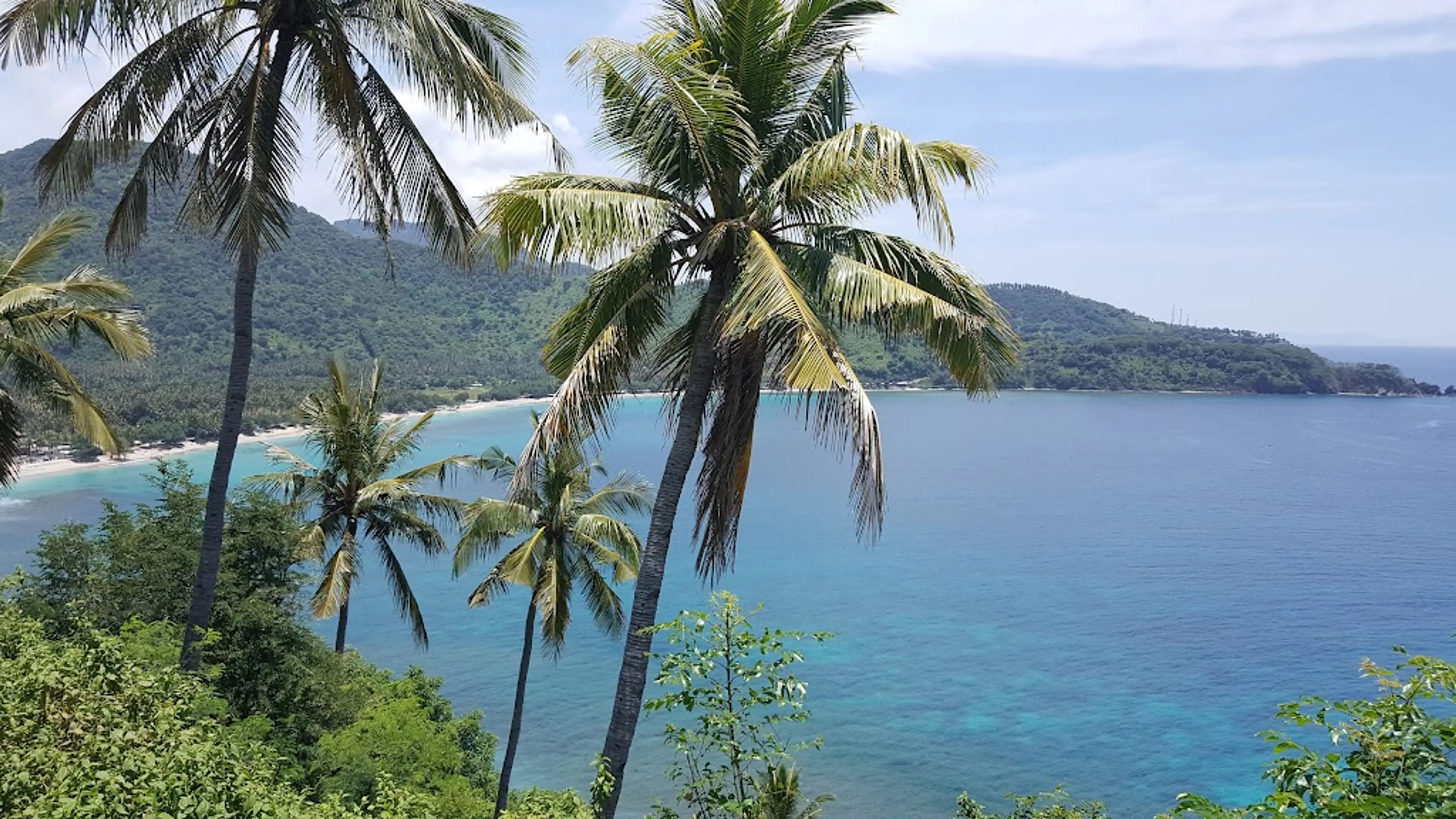
Lombok
An island known for its surf spots, stunning beaches, and the active volcano Mount Rinjani.
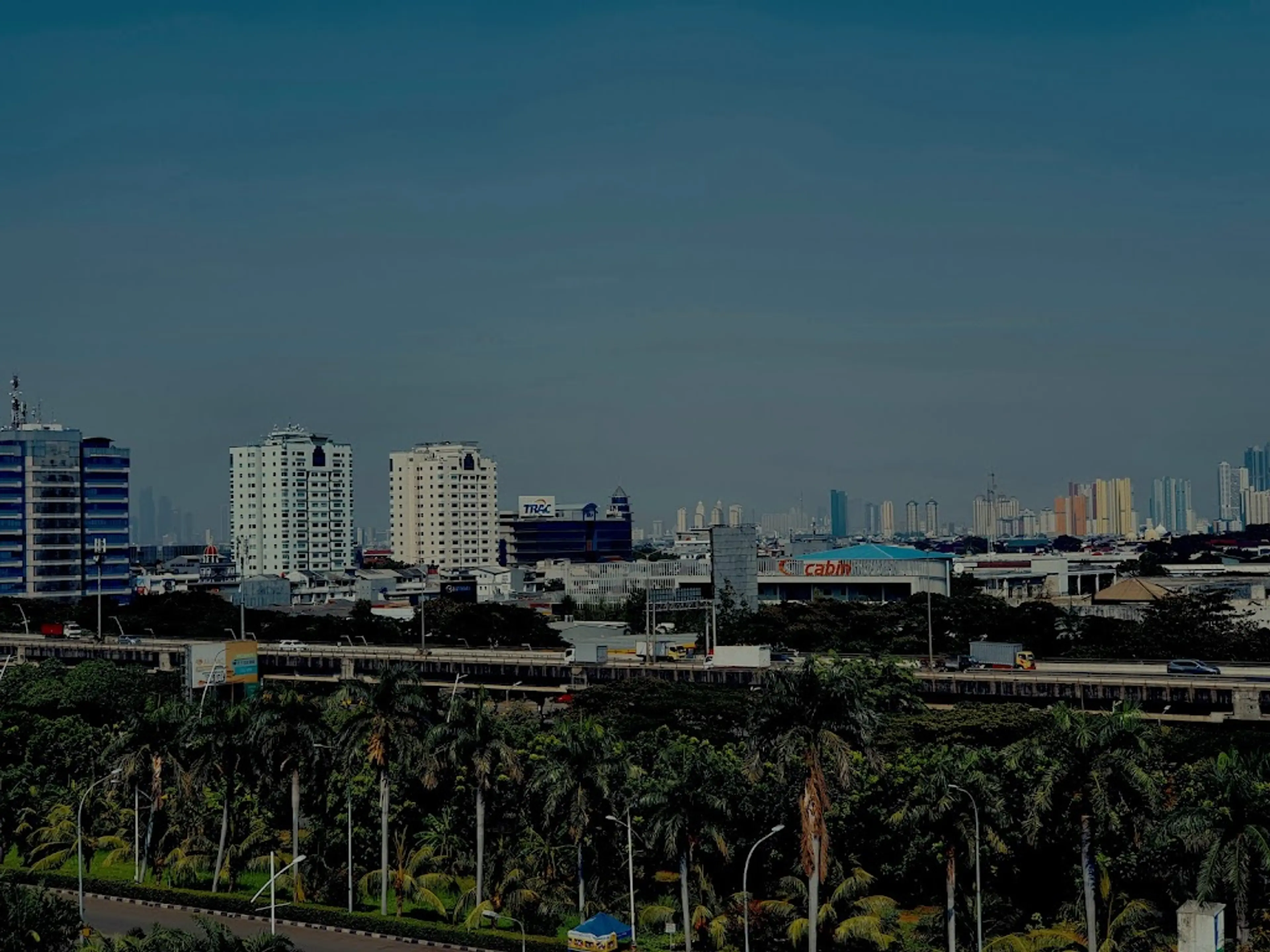
Jakarta
The capital city of Indonesia, known for its bustling city life and iconic landmarks like the National Monument.

Gili Islands
A group of 3 tiny islands – Gili Trawangan, Gili Meno and Gili Air – famous for their sandy beaches fringed with palm trees and coral reefs.

Komodo Island
Famous for its native population of Komodo Dragons, the world's largest living lizards.
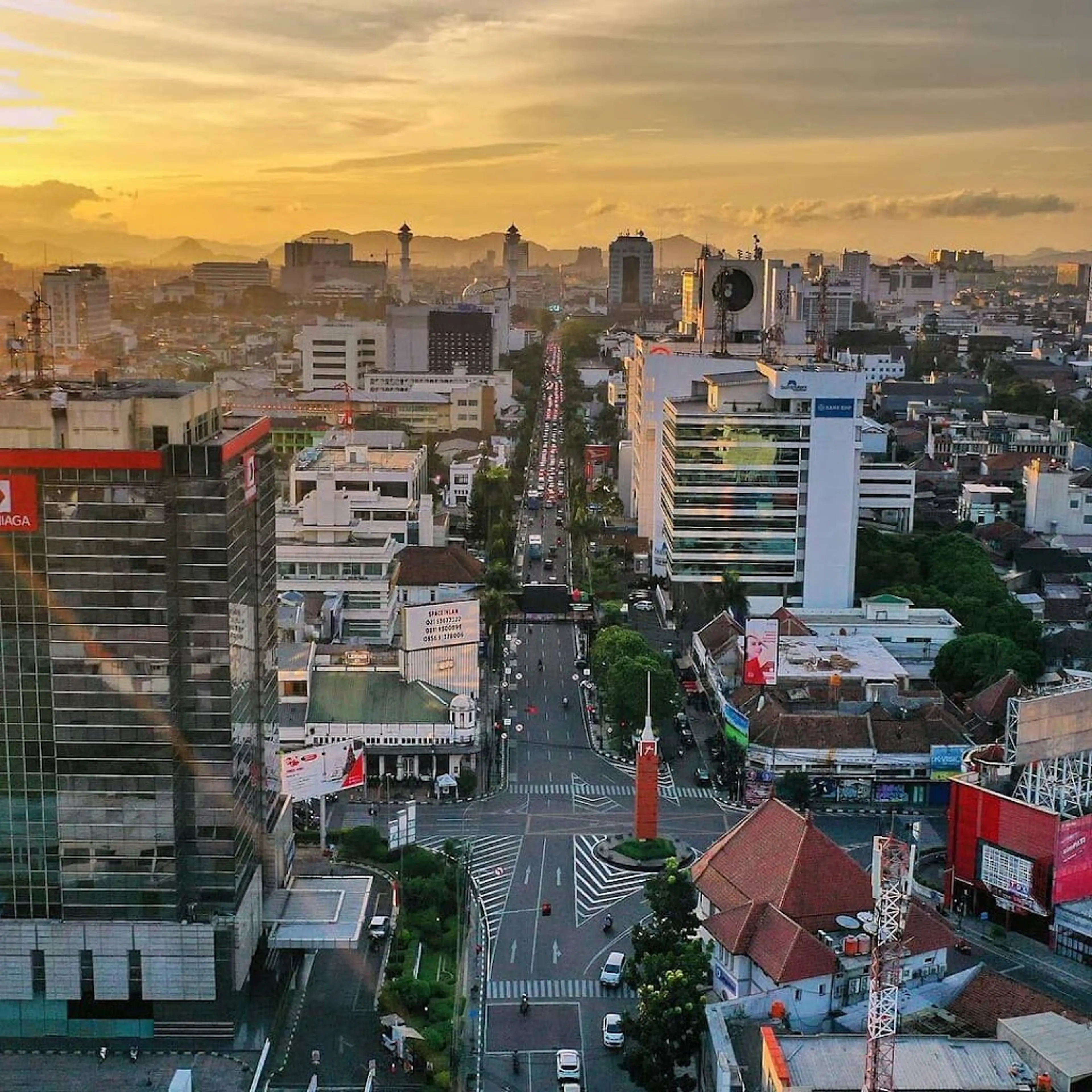
Bandung
Known for its tea plantations, volcanoes, and hot springs, Bandung is also a shopping haven with numerous markets and outlets.
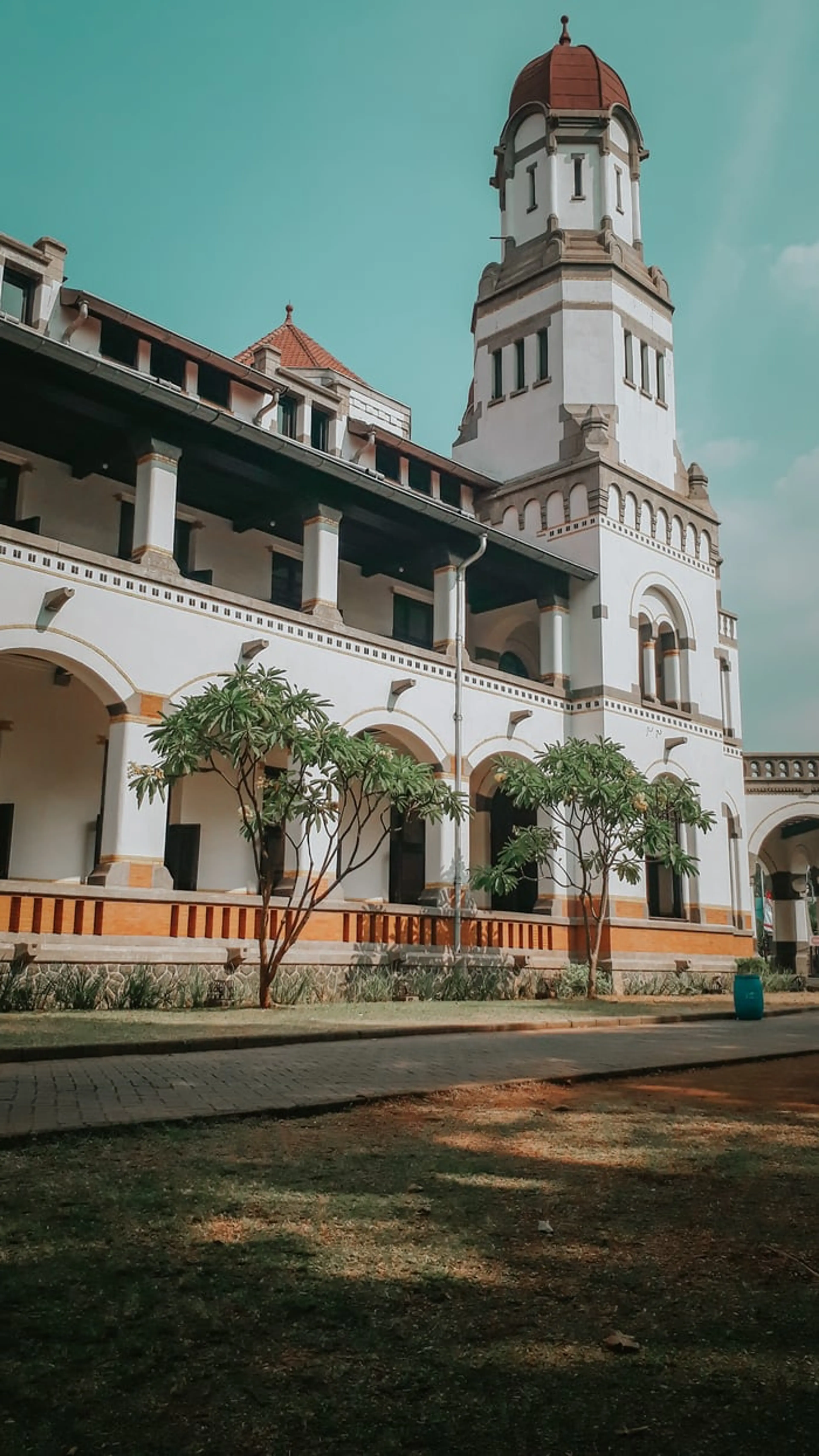
Semarang
A city known for its Dutch colonial architecture and the colorful Sam Poo Kong temple.


